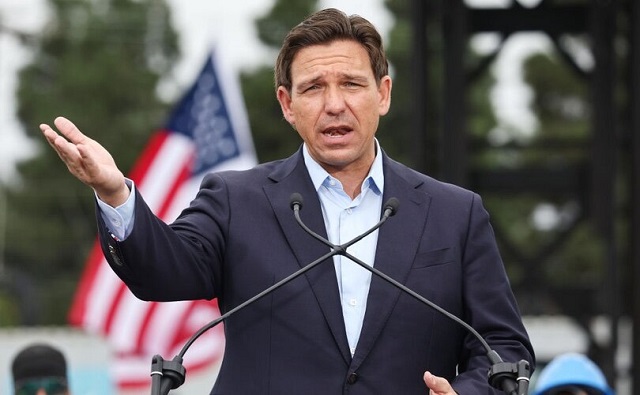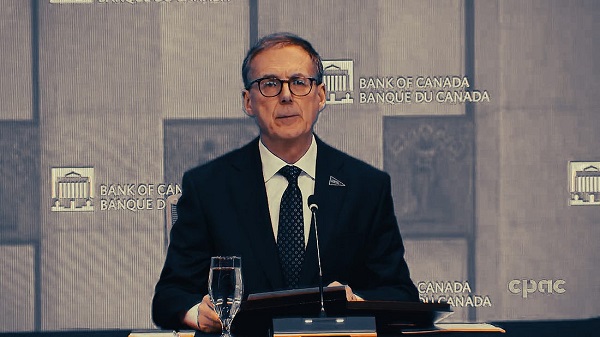COVID-19
DeSantis’ Florida warns against taking COVID-19 shots in fall health guidance

From LifeSiteNews
” the federal government has failed to provide sufficient data to support the safety and efficacy of COVID-19 boosters, or acknowledge previously demonstrated safety concerns “
While most state health bureaucracies prepare for the fall flu season with fresh encouragement to take COVID-19 boosters, the Florida Department of Health (DOH) is instead urging residents to stay informed about the reasons not to take them.
On Thursday, Florida Health released its Updated Guidance for COVID-19 Boosters for the Fall and Winter 2024–2025 Season, which opens with a reminder of the “importance of remaining up to date with current literature related to COVID-19 vaccines and boosters, and the importance of providing patients with informed consent.”
It then notes that while the U.S. Food & Drug Administration (FDA) approved updated mRNA COVID shots last month for those 12 and over plus emergency use authorization for those as young as six months, the Omicron variant they are meant for “is not causing a significant number of infections” and, more importantly, the “most recent booster approval was granted in the absence of booster-specific clinical trial data performed in humans,” does not protect against the most dominant current COVID strain, and that the “federal government has not required COVID-19 vaccine manufacturers to demonstrate their boosters prevent hospitalizations or death.”
“Additionally, the federal government has failed to provide sufficient data to support the safety and efficacy of COVID-19 boosters, or acknowledge previously demonstrated safety concerns associated with COVID-19 vaccines and boosters, including: prolonged circulation of mRNA and spike protein in some vaccine recipients, increased risk of lower respiratory tract infections, and increased risk of autoimmune disease after vaccination,” it continues.
The guidance additionally “advises against the use of mRNA COVID-19 vaccines” and urges providers of patients 65 and older with underlying health conditions to prioritize access to “non-mRNA” treatment.
“Improving habits and overall health help manage and reduce the risk of heart disease, type 2 diabetes, and obesity, risk factors for serious illness from COVID-19,” it concludes. “The State Surgeon General and the Department continue to encourage Floridians to prioritize their overall health by: [s]taying physically active, [m]inimizing processed foods, [p]rioritizing vegetables and healthy fats, and [s]pending time outdoors to support necessary vitamin D levels.”
Under Republican Gov. Ron DeSantis, Florida has taken the lead on defying the COVID-19 establishment, disavowing lockdowns and mandates the most aggressively out of any state before moving on to challenge the shots themselves, most recently with a grand jury impaneled by DeSantis to investigate their manufacturers.
In February, it released its first interim report on the underlying justification for the shots, which determined that lockdowns did more harm than good, that masks were ineffective at stopping COVID transmission, that COVID was “statistically almost harmless” to children and most adults, and that it is “highly likely” that COVID hospitalization numbers were inflated. The grand jury’s report on the shots themselves is highly anticipated.
A large body of evidence identifies significant risks to the COVID jabs, which were developed and reviewed in a fraction of the time vaccines usually take under former President Donald Trump’s Operation Warp Speed initiative. Among it, the federal Vaccine Adverse Event Reporting System (VAERS) reports 37,910 deaths, 217,931 hospitalizations, 21,917 heart attacks, and 28,602 myocarditis and pericarditis cases as of September 6, among other ailments. U.S. Centers for Disease Control & Prevention (CDC) researchers have recognized a “high verification rate of reports of myocarditis to VAERS after mRNA-based COVID-19 vaccination,” leading to the conclusion that “under-reporting is more likely” than over-reporting.
An analysis of 99 million people across eight countries published February in the journal Vaccine “observed significantly higher risks of myocarditis following the first, second and third doses” of mRNA-based COVID jabs, as well as signs of increased risk of “pericarditis, Guillain-Barré syndrome, and cerebral venous sinus thrombosis,” and other “potential safety signals that require further investigation.” In April, the CDC was forced to release by court order 780,000 previously undisclosed reports of serious adverse reactions, and a study out of Japan found “statistically significant increases” in cancer deaths after third doses of mRNA-based COVID-19 shots and offered several theories for a causal link.
COVID-19
Canadian veteran challenges conviction for guarding War Memorial during Freedom Convoy

From LifeSiteNews
When the convoy first came to Ottawa, allegations were floated that the memorial had been desecrated. After learning of this, Evely quickly organized a group of veterans to stand guard around the clock to protect the area.
A Canadian veteran appealed to the Ontario courts after he was convicted for organizing a guard around the National War Memorial during the Freedom Convoy.
In an October press release, the Justice Centre for Constitutional Freedoms (JCCF) announced that an appeal has been filed in the Ontario Court of Appeals on behalf of Master Warrant Officer (Ret’d) Jeffrey Evely over his conviction for mischief and obstructing police while on his way to guard the Ottawa War Memorial during the 2022 Freedom Convoy.
“By locking down large sections of downtown Ottawa, the police were effectively preventing all civilians from accessing public areas and greatly exceeded their powers under the common law,” constitutional lawyer Chris Fleury explained.
“This case raises issues that have implications for protests across the province and the country. We are hopeful that the Ontario Court of Appeal will agree and grant leave to appeal,” he added.
The appeal argues that police overstepped their authority in their response to the 2022 protest of COVID mandates. Police actions at the time included locking down the Ottawa core, establishing checkpoints, and arresting protesters.
In September 2024, Everly was convicted of mischief and obstruction after his involvement in the 2022 Freedom Convoy, which protested COVID mandates by gathering Canadians in front of Parliament in Ottawa.
As LifeSiteNews previously reported, when the convoy first came to Ottawa, allegations were floated that the memorial had been desecrated. After learning of this, Evely quickly organized a group of veterans to stand guard around the clock to protect the area.
However, under former Prime Minister Justin Trudeau’s use of the Emergencies Act, many parts of downtown Ottawa were blocked to the public, and a vigilant police force roamed the streets.
It was during this time that Evely was arrested for entering a closed off section of downtown Ottawa during the early hours of February 19, 2022. He had been on his way to take the 4:25 a.m. shift protecting the Ottawa War Memorial.
As Evely walked to the memorial, he was allegedly told to stop by police. According to the police, Evely “ran for a short distance before being confronted by two additional police officers.”
He was forcibly pushed to the ground, landing face first. The veteran was then arrested and charged with mischief and obstructing police.
At the time, the use of the EA was justified by claims that the protest was “violent,” a claim that has still gone unsubstantiated.
In fact, videos of the protest against COVID regulations and shot mandates show Canadians from across the country gathering outside Parliament engaged in dancing, street hockey, and other family-friendly activities.
Indeed, the only acts of violence caught on video were carried out against the protesters after the Trudeau government directed police to end the protest. One such video showed an elderly women being trampled by a police horse.
While the officers’ actions were originally sanctioned under the EA, Federal Court Justice Richard Mosley ruled that Trudeau was “not justified” in invoking the EA, forcing Crown prosecutors to adopt a different strategy.
Now, Crown prosecutors allege that the common law granted police the authority to stop and detain Evely, regardless of the EA.
However, Evely and his lawyers have challenged this argument under section 9 of the Canadian Charter of Rights and Freedoms, insisting that his “arrest and detention were arbitrary.”
Earlier this month, Freedom Convoy organizers Tamara Lich and Chris Barber were sentenced to 18-month house arrest after a harrowing 25-month trial process. Many have condemned the sentence, warning it amounts to “political persecution” of those who stand up to the Liberal government.
COVID-19
Freedom Convoy leader Tamara Lich says ‘I am not to leave the house’ while serving sentence

From LifeSiteNews
‘I was hoping to be able to drop off and pick up my grandsons from school, but apparently that request will have to go to a judge’
Freedom Convoy leader Tamara Lich detailed her restrictive house arrest conditions, revealing she is “not” able to leave her house or even pick up her grandkids from school without permission from the state.
Lich wrote in a X post on Wednesday that this past Tuesday was her first meeting with her probation officer, whom she described as “fair and efficient,” adding that she was handed the conditions set out by the judge.
“I was hoping to be able to drop off and pick up my grandsons from school, but apparently that request will have to go to a judge under a variation application, so we’ll just leave everything as is for now,” she wrote.
Lich noted that she has another interview with her probation officer next week to “assess the level of risk I pose to re-offend.”
“It sounds like it’ll basically be a questionnaire to assess my mental state and any dangers I may pose to society,” she said.
While it is common for those on house arrest to have to ask for permission to leave their house, sometimes arrangements can be made otherwise.
On October 7, Ontario Court Justice Heather Perkins-McVey sentenced Lich and Chris Barber to 18 months’ house arrest after being convicted earlier in the year convicted of “mischief.”
Lich was given 18 months less time already spent in custody, amounting to 15 1/2 months.
As reported by LifeSiteNews, the Canadian government was hoping to put Lich in jail for no less than seven years and Barber for eight years for their roles in the 2022 protests against COVID mandates.
Interestingly, Perkins-McVey said about Lich and Barber during the sentencing, “They came with the noblest of intent and did not advocate for violence.”
Lich said that her probation officer “informed me of the consequences should I breach these conditions, and I am not to leave the house, even for the approved ‘necessities of life’ without contacting her to let her know where I’ll be and for how long,” she wrote.
“She will then provide a letter stating I have been granted permission to be out in society. I’m to have my papers on my person at all times and ready to produce should I be pulled over or seen by law enforcement out and about.”
Lich said that the probation officer did print a letter “before I left, so I could stop at the optometrist and dentist offices on my way home.”
She said that her official release date is January 21, 2027, which she said amounts to “1,799 days after my initial arrest.”
As reported by LifeSiteNews, Lich, reflecting on her recent house arrest verdict, said she has no “remorse” and will not “apologize” for leading a movement that demanded an end to all COVID mandates.
LifeSiteNews reported that Conservative Party leader Pierre Poilievre offered his thoughts on the sentencing, wishing them a “peaceful” life while stopping short of blasting the sentence as his fellow MPs did.
In early 2022, the Freedom Convoy saw thousands of Canadians from coast to coast come to Ottawa to demand an end to COVID mandates in all forms. Despite the peaceful nature of the protest, Trudeau’s government enacted the never-before-used Emergencies Act (EA) on February 14, 2022.
-

 Internet2 days ago
Internet2 days agoMusk launches Grokipedia to break Wikipedia’s information monopoly
-

 Business1 day ago
Business1 day agoCanada heading into economic turbulence: The USMCA is finished and Canadian elbows may have started the real fight
-

 Business2 days ago
Business2 days agoBill Gates walks away from the climate cult
-

 Opinion2 days ago
Opinion2 days agoBritish Columbians protest Trump while Eby brings their province to its knees
-

 National1 day ago
National1 day agoCanada’s NDP is now calling women ‘non-males’
-

 National1 day ago
National1 day agoCanadian MPs order ethics investigation into Mark Carney’s corporate interests
-

 Business1 day ago
Business1 day agoFord’s Liquor War Trades Economic Freedom For Political Theatre
-

 Banks1 day ago
Banks1 day agoBank of Canada Cuts Rates to 2.25%, Warns of Structural Economic Damage







